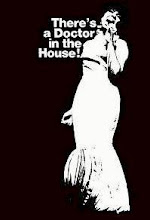»After You've Gone«
Being one of the queen mothers of modern jazz, blues and ultimately soul as well, Bessie Smith and the songs she recorded have inspired many. On March 2, 1927, Bessie recorded four popular songs, Turner Layton's & Henry Creamer's »After You've Gone« among them. (The song was first recorded in July 1918 by Marion Harris: listen to it here; find out more about it here and here.) At the time and later on as well, Bessie's choice of popular tunes was often criticized. Chris Albertson writes:
Blues purists - who, oddly enough, don't complain about Bessie's 1923 record- ings of lesser-known pop fare - have bemoaned her "commercial" repertoire for this session, and critics have rationalized it as an attempt to regain lost ground. But Bessie's popularity was not threatened at the time, and her recordings reflected only a part of her actual repertoire. Her treatment of these songs offers delightful evidence of her talent for turning banal material into something special. (...)The least one can say is that Bessie made the song her own, so that until today nobody (I guess) associates it with Marion Harris but rather with Bessie Smith. Thus we find it on two »Bessie Smith Tribute« LPs from the late '50s, the one, famous enough, by Dinah Washington, the other, truly obscure, by Becky Hall.
Just as the sudden popularity of theatrical blues (as opposed to the street corner variety) had turned "sweet" singers into blues divas overnight, so it was easy for blues singers to venture beyond their regular domain. Bessie did this routinely on stage, but even a song like "After You've Gone" almost be- came a blues when she handled it ... (Bessie, rev. and expanded ed., New Haven 2003, p. 148 f.)
 |
| AAMCO LP # 324 (1959?) |
The low-priced AAMCO label (a subsidiary of some sort of Alison Enterprises) was established in summer 1958 and barely a year later, in June '59, Alison-AAMCO already filed for bankruptcy (see Billboard, June 29, 1959, p. 7). However, if running across the net you'll find release dates for AAMCO LPs ranging from 1956 to the mid-'60s ... Conventionally, Becky's LP is assigned to 1959, and this makes sense because Georges Rhodes (who was Sammy Davis's accompanist) is mentioned as the arranger in the notes on the back cover. Rhodes joined Alison-AAMCO only at the beginning of '59 (see JET, Jan. 29, 1959, p. 64), thus 1959 seems to be about right as the release date of the album.
For the curious among you I can add that it is worthwhile to look for other AAMCO LP releases ... you'll find everything from serious jazz by famous soloists and bandleaders to mildly bizarre releases of more or less exotic stuff: Torero (Music of the Bull Ring) (»a 66 piece band captures the pageantry of bull ring«), Favorite Polkas, Mazeltov, Flamenco, The Scots Guards Bag Pipes (»Stirring songs of Scot- land«) and, my favorite album, Tarik Bulut's In An Egyptian Garden (»Sensuous songs of the exotic Middle East«). Also noteworthy is the respective cover art of many of these LPs, and not without good reason at least one AAMCO album made it on the Bizarre Records website ...
 |
| EmArcy LP # MG-36130 (1958) |
Below, you can listen to Becky Hall's version of »After You've Gone«, followed by Dinah's. I personally feel that putting Becky's version first is doing her a favor, really. Maybe this is because I am, by personal inclination, unshakably partial to the art of Ruth Lee Jones. Anyhow, Becky's every so often strident voice is less forceful and less modulated than Dinah's, especially in the upper registers, and vocally she tackles the song as if it were kind of a French chanson. Finally, and quite indepen- dent from both the artists' respective talents, Dinah's voice was recorded way clearer and more up front than was Becky's. But well, there is always something to listen to with interest, if not delight:
Becky Hall ('59)/ Dinah Washington ('58): »After You've Gone«:













Well, gosh, what can you say . . . I'd venture that putting just about anybody next to Miss D, it would still come out no contest. Dinah Washington, what a singer!
ReplyDeleteOf course Dinah is the Queen but to be honest this little obscure Becky Hall is not half bad at all - or perhaps I just love this song no matter who sings it. She does pours her heart out in different way than Dinah - listening twice in a row now. As for second version, the rickety tick drums bugged me years ago on a first listening and it still annoys me now - there were never drums on original versions - though you are right,this is highlight of the record and the song I listen the most (drums or no drums). Add LaVern Baker here, she also recorded Bessie album around the same time + surprisingly enough wonderful Odetta also did "classic blues" album in 1962.
ReplyDelete